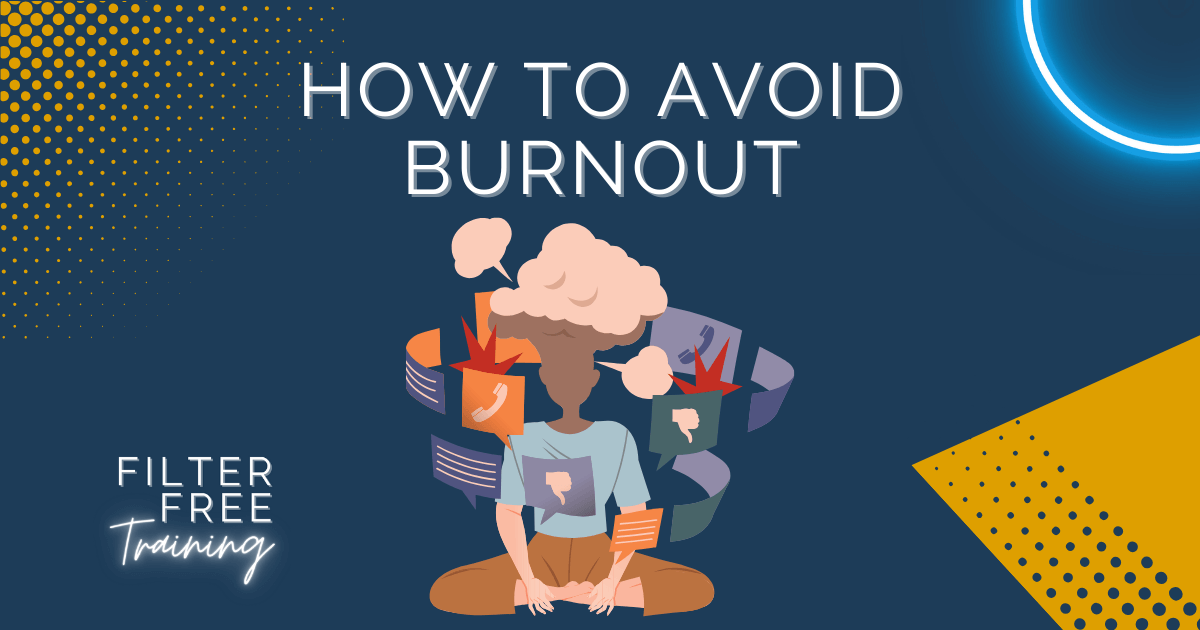Whether you’re an employer wanting the best for your staff or an employee looking to improve your mental health at work, burnout has become a huge issue among professionals. Burnout not only affects productivity and job satisfaction but also has detrimental effects on mental and physical well-being. However, by implementing effective strategies, you can learn to guard yourself against burnout and maintain a healthy work-life balance. In this article, we will explore seven practical tips to help you avoid burnout at work.
Establish Boundaries
One of the primary causes of burnout is the blurring of boundaries between work and personal life. Establishing clear boundaries is essential to prevent work from encroaching into your personal time. Set specific hours for work and stick to them as much as possible. Avoid checking work emails or messages outside of these hours, and communicate your boundaries to your colleagues and supervisors. If you’re in a leadership role this is even more important as you can set an example for your staff to follow.
Prioritize Self-Care
Self-care is crucial for maintaining resilience in the face of workplace stressors. Make time for activities that recharge your batteries and promote well-being, such as exercise, meditation, hobbies, or spending time with loved ones. Prioritizing self-care not only enhances your ability to cope with stress but also boosts your overall productivity and effectiveness at work, helping you achieve more in a shorter space of time.
Learn to Delegate
We all sometimes fall into the trap of trying to do everything yourself, which can lead to burnout. Learning to delegate tasks effectively is essential for managing workload and preventing overwhelm. Identify tasks that can be delegated to others and trust your colleagues to handle them well. Delegating not only lightens your workload but also fosters a sense of collaboration and teamwork.
Practice Time Management
Effective time management is key to preventing burnout. Set realistic goals and prioritize tasks based on their importance and urgency. Break larger projects into smaller, manageable tasks and allocate specific time slots to work on them. Avoid overcommitting yourself and learn to say no to additional responsibilities when necessary. By managing your time efficiently, you can reduce stress and prevent burnout.
Take Regular Breaks
Working long hours without breaks can quickly lead to burnout. It’s essential to take regular breaks throughout the day to rest and recharge. Whether it’s a short walk, a coffee break, or a brief meditation session, stepping away from your work periodically allows your mind and body to rejuvenate. Incorporate breaks into your daily routine to maintain productivity and prevent burnout.
Cultivate Supportive Relationships
Having a strong support network can help buffer the effects of workplace stress and prevent burnout. Cultivate supportive relationships with colleagues, friends, and family members who can offer encouragement, advice, and perspective. Don’t hesitate to reach out for support when you’re feeling overwhelmed or stressed. Sharing your concerns with others can help alleviate feelings of isolation and provide valuable support during challenging times.
Know When to Seek Help
Despite our best efforts, burnout can sometimes become unavoidable. It’s essential to recognize the warning signs of burnout, such as persistent fatigue, irritability, and diminished performance, and take proactive steps to address them. If you’re struggling to cope with work-related stress, don’t hesitate to seek help from a mental health professional. Therapy or counseling can provide strategies for managing stress and preventing burnout, enabling you to thrive both personally and professionally.
Conclusion
Burnout is a significant challenge facing many professionals today, but it’s not inevitable. By implementing these seven strategies – establishing boundaries, prioritizing self-care, learning to delegate, practicing time management, taking regular breaks, cultivating supportive relationships, and knowing when to seek help, you can protect yourself against burnout and have more chances to achieve your work goals. Remember, prioritizing your well-being is not selfish; it’s essential for long-term success and happiness in both your professional and personal life.
If you or your team would benefit from a group or 1-to-1 session on how to avoid burnout then please get in touch for chat on how we can best support you.




